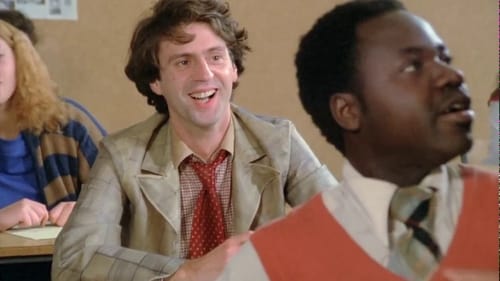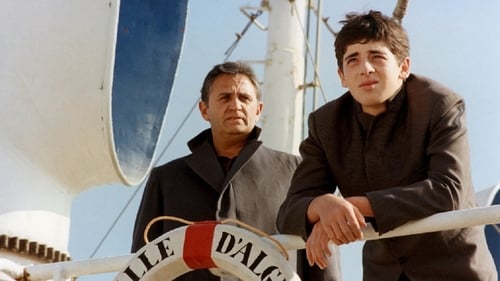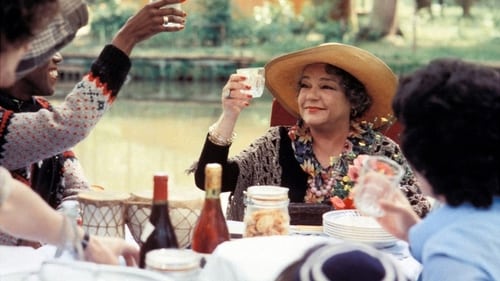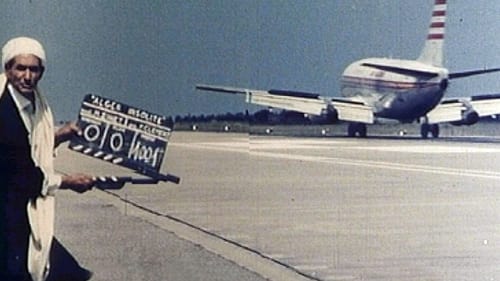Mohamed Zinet
Nacimiento : 1932-01-16, Alger, Algérie
Muerte : 1995-04-10

Mustapha le terroriste
La directora de un colegio privado, tras el fracaso del anterior año escolar, donde hubo un cero por ciento de titulados en el Bachiller, decide maximizar la disciplina y el control. Firmes normas de vestuario, cámaras de seguridad en las clases, detectores de humo en los lavabos para que los estudiantes no fumen, y severas técnicas de aprendizaje, pero, debido a los graves problemas de conducta de los estudiantes, todos estos intentos parecen resultar en vano...

Le porteur
A shady Parisian tries to take advantage of a family of French-descended Algerians forced to move to France.

Kadir Youssef
Madame Rosa es una exprostituta judía de unos 70 años que se gana la vida acogiendo en su casa de París a los hijos no deseados de las prostitutas del barrio. Cuida a doce chiquillos, a los que sus madres visitan cuando pueden y le entregan algo de dinero. Pero hay cuatro por los que no recibe dinero alguno, como Momo, un chico árabe de catorce años. Sabiendo que su salud y sus recursos se están agotando, Madame Rosa le confiesa al chico sus problemas, pero, al mismo tiempo, muy preocupada por su tristeza, llama al médico, que le dice que el único problema del muchacho es la falta de afecto. Como Momo no es admitido en la escuela, tiene que buscarse la vida en la calle. (FILMAFFINITY)

Writer
Originally commissioned by the city of Algiers to promote tourism, Mohamed Zinet’s Tahia ya Didou blends documentary with fiction to create a poetic, acerbic and rapturous portrait of the director’s native city. The camera travels freely, through the port, market, streets and cafés, capturing everyday people, some of whom recur frequently enough to seem like protagonists. The nominal plotline follows a French tourist couple’s leisurely visit to the city, the man having previously served in the army during the Algerian war. As they walk around, his comments betray his mindset’s racist colonial prejudices, while his wife reiterates asinine clichés. Their unhurried wandering is interrupted when he comes across a blind man and realises that he tortured him during his army service. The film is punctuated with punchy sequences that show a poet named Momo delivering verse as an elegy for Algiers.

Hassan
Originally commissioned by the city of Algiers to promote tourism, Mohamed Zinet’s Tahia ya Didou blends documentary with fiction to create a poetic, acerbic and rapturous portrait of the director’s native city. The camera travels freely, through the port, market, streets and cafés, capturing everyday people, some of whom recur frequently enough to seem like protagonists. The nominal plotline follows a French tourist couple’s leisurely visit to the city, the man having previously served in the army during the Algerian war. As they walk around, his comments betray his mindset’s racist colonial prejudices, while his wife reiterates asinine clichés. Their unhurried wandering is interrupted when he comes across a blind man and realises that he tortured him during his army service. The film is punctuated with punchy sequences that show a poet named Momo delivering verse as an elegy for Algiers.

Director
Originally commissioned by the city of Algiers to promote tourism, Mohamed Zinet’s Tahia ya Didou blends documentary with fiction to create a poetic, acerbic and rapturous portrait of the director’s native city. The camera travels freely, through the port, market, streets and cafés, capturing everyday people, some of whom recur frequently enough to seem like protagonists. The nominal plotline follows a French tourist couple’s leisurely visit to the city, the man having previously served in the army during the Algerian war. As they walk around, his comments betray his mindset’s racist colonial prejudices, while his wife reiterates asinine clichés. Their unhurried wandering is interrupted when he comes across a blind man and realises that he tortured him during his army service. The film is punctuated with punchy sequences that show a poet named Momo delivering verse as an elegy for Algiers.

“Monangambeee” was a rallying cry used by activists during Angola’s anti-colonial liberation struggle to gather villages together. The film of the same title addresses Portuguese arrogance towards Angolan culture. Sarah Maldoror draws on a novella by José Luandino Vieira, the story of a political prisoner, to make a film about humiliation, solidarity and resistance.






